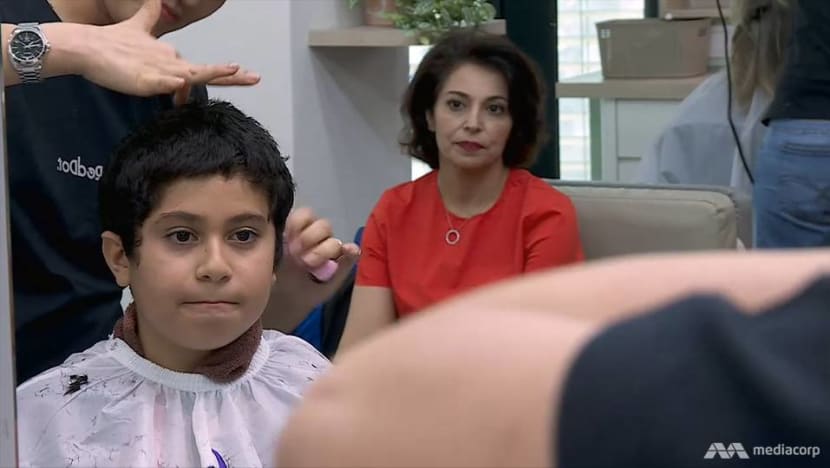From special haircuts to speaking Hebrew, how Jews live in Singapore
Whether they follow the orthodox code or are less strict, they are redefining, adapting and embracing Jewish life the Singaporean way. The series Singapore Mosaic takes a peek into their lives.
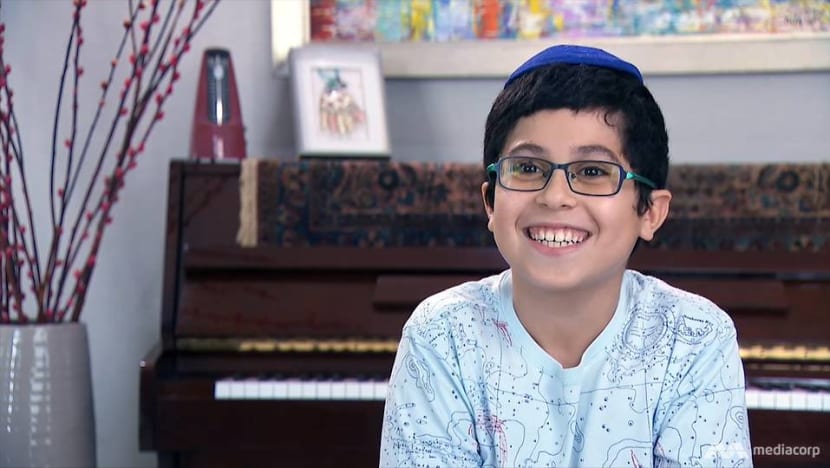
“Growing up here is special," says Daniel, 10, even if being Jewish is “very hard" owing to Jewish laws.
SINGAPORE: Whenever her 10-year-old son Daniel has his monthly haircut, mum Sara Khafi is always standing by to ensure that an important rule is followed: That his sideburns are not cut — just trimmed a little.
Orthodox Jewish males are not allowed to shave their sideburns. “And very orthodox Jews don’t cut the sideburns at all,” explained Sara, who belongs to Singapore’s Jewish community.
Until the age of three, boys cannot have their hair cut either. This is instructed in the Torah, the Jewish holy writings.
When it is time for National Service, however, Daniel will have to do as his elder brother David did.
“The only time (David) shaved off his sideburns was when he enlisted … He had to shave all his hair off,” their mother recalled with a smile.
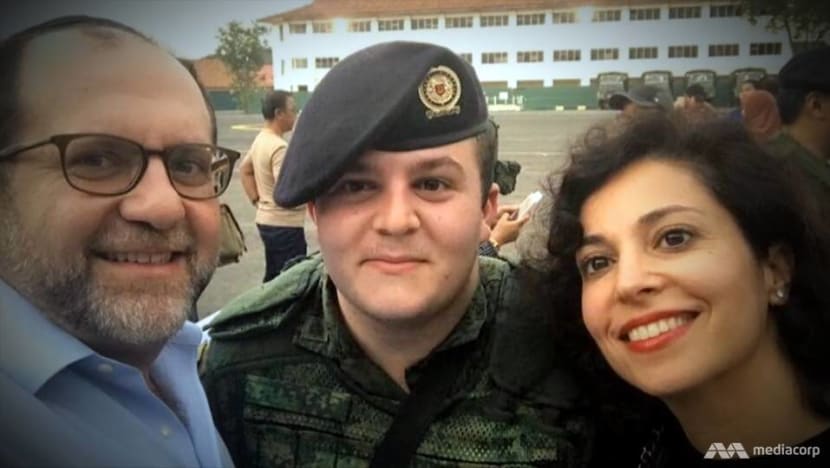
There are roughly 2,500 Jewish residents here, from lifelong citizens to those who have made Singapore their home more recently, for example Sara.
The 50-year-old German of Persian descent has been living in Singapore for 30 years, giving birth to five children here.
“People still think we’re tourists because we don’t look Asian. And they don’t want to believe us at first — that we’re from Singapore,” she said. “This is home.”
It has been home to Jews for 200 years, since the first Jewish settlers — originally from Baghdad, Iraq — came mainly via India as traders.
And they continue to integrate while preserving their own cultural identity, as the series Singapore Mosaic illustrates with a peek into the lives of four communities: The Jews, the Parsis, the Arabs and the Armenians. (Watch this episode here.)
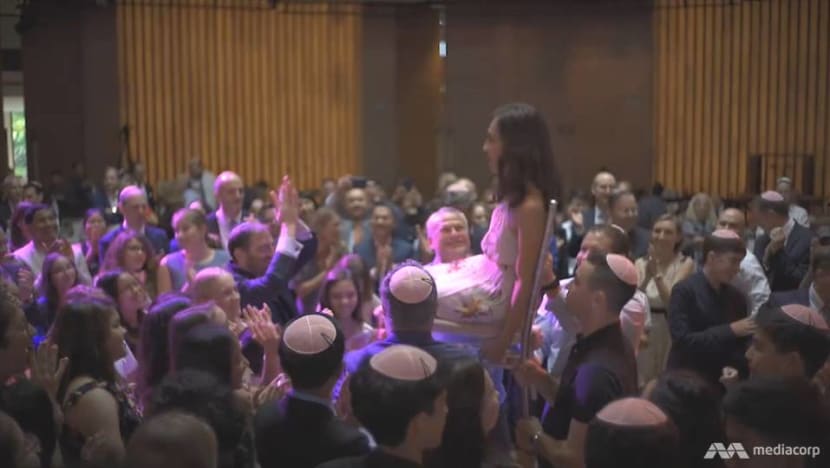
HOW THEY EAT
One aspect of the Jewish identity is food, kosher food to be precise. For many Jews, that means following strict dietary laws.
“We don’t eat pork, fish without fins and scales, and our beef and chicken has to be slaughtered differently … We don’t eat the blood of the animal; we let the blood come out,” explained Sara.
“Even if it’s vegetarian (food), do they put any ingredients or preservatives inside that might be from an animal? So all these make it not kosher.”

She buys her products from “all over Singapore”. But for major kosher products like meat, which are difficult to obtain in supermarkets, she goes to the kosher shop in the Jewish community centre at Waterloo Street.
Poultry is slaughtered locally for the community and provided at a “decent and affordable price”, said Chief Rabbi of Singapore Mordechai Abergel. Even finding something like kosher chocolate spread would be a challenge if not for the shop.
Eating kosher, however, goes beyond shopping for the right ingredients; how food is handled is equally important.
“We don’t cook meat and dairy together,” explained Sara, whose kosher kitchen has one sink for meat and another for dairy, as well as two ovens, two fridges and separate utensils for the two kinds of food.

In the multicultural home of Yoni Garbourg, kosher laws are not kept so strictly. The 42-year-old was born in Israel, while his wife Connie was born in China.
“There’s no dinner here without some Asian flavour,” he said at one of their meals, pointing to some kang kong (water spinach) and bok choy (a Chinese cabbage).
Even a traditional Jewish bread like challah can be given a Singaporean twist: Kaya filling, which their children love. “The food in both cultures (Jewish and Asian) is great. So it’s a tasty relationship,” he added with a smile.
KEEPING THE SABBATH
While the Garbourgs are not strictly observant Jews, they “make a better effort” to keep Shabbat, or the Sabbath — from sunset on Friday to sunset on Saturday.
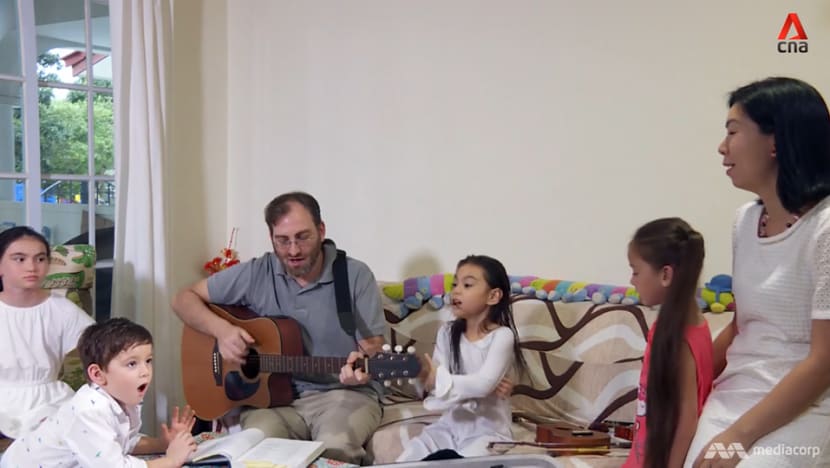
It starts with the lighting of candles, which is traditionally done by the women of the family, and prayers being said. “We try to arrive home earlier on Shabbat, making sure our dinner preparations are finished,” said Yoni.
And while they have more of an Asian diet throughout the week, their Shabbat dinner at home is mostly Jewish, with dishes like matzo ball soup and a stew prepared to his grandmother’s recipe.
Preparations must start early because there should be no cooking on Shabbat itself.
“One of the things observant Jews have in their kosher kitchen is a hotplate … that we turn on before Shabbat,” said Sara. “We cook everything before Shabbat comes and … we’d just warm it up.”
Her adherence to the Jewish day of rest means she also switches off her phone.
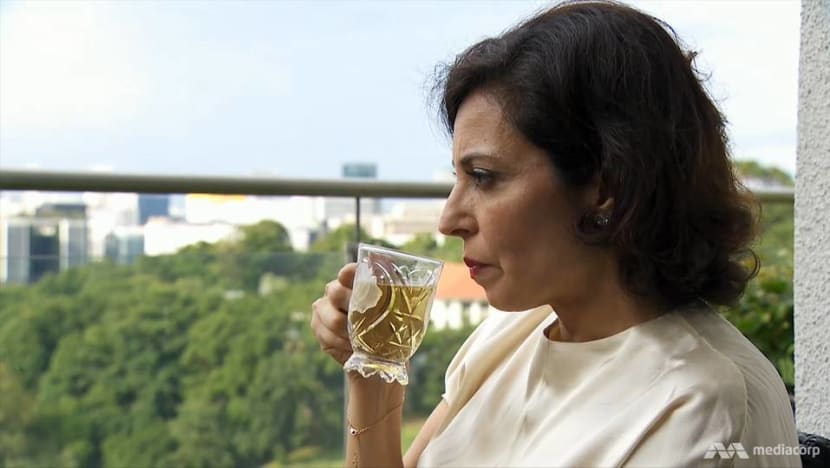
“Being a real estate agent in Singapore, I do face challenges, especially when I have a client who’s impatient. I have to make sure my colleague can cover (for me),” she admitted.
“So far, I’ve been lucky. Sometimes my colleagues would say, ‘you’re crazy’, because I might not successfully close a deal, right? But no, I’m Jewish. So I have to do it.”
Her family also does not use electronics on Shabbat, which means “no television with the kids”.
“We get more quality time,” she said. “So it became a habit not to use a digital device. It’s not the end of the world to keep, (for) one day, away from the digital world.”
Even getting to the synagogue is different on Shabbat, as observant Jews do not drive on that day. Fortunately for her family, they are within walking distance of Singapore’s two synagogues.

She is also thankful to her helpers, who help her to “get everything done” on Shabbat. “Many Jews who are even more observant … won’t let the maid do anything for them,” she said.
WHAT THEY SPEAK
As a Jewish mother, Sara feels she also has a responsibility to ensure that her grandchildren will be Jewish. This means her children must first “understand who they are (and) where they came from”, she said.
One way for that to happen is through the Hebrew language. Daniel, for example, attends weekly classes with other Jewish children at the synagogue, where he gets to sing in Hebrew too.
WATCH: Living as an orthodox Jew in Singapore (3:50)
“That gets them more connected to the roots of their Jewish identity,” said his mother. “He’ll then be able to continue his Jewish belief.”
Yoni, too, is making sure his children — three girls and a boy — “feel comfortable” with the language. “They go to my community’s Sunday school, where they get a couple of hours of Hebrew,” he said.
To him, Hebrew is important for “at least saying certain prayers and being able to participate in some of the services”.
His children also go to local schools, where they study Mandarin. “It’s important … because it’s my wife’s culture. And of course, we live in Singapore and in Asia, and it’s important to have Mandarin skills,” he said.
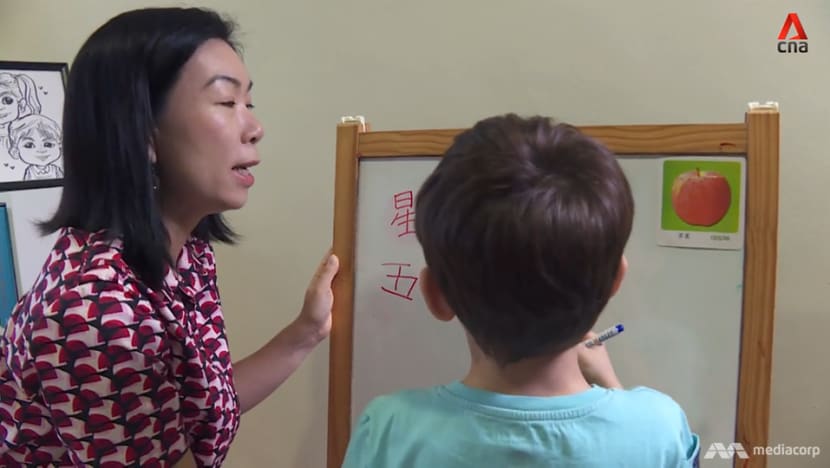
As with food, the family incorporates both parents’ cultures, and it is one of their traditions to sing Happy Birthday in English, Mandarin and Hebrew.
“It’s not either-or. We feel very comfortable bringing them up in both the Chinese and the Jewish way,” said Connie, 40.
“Especially in Singapore, when it’s such a diverse and inclusive culture — different ethnicities, different religions — they blend together. So for us, it’s very easy to be Chinese and Jewish at the same time.”
That includes visiting a Buddhist temple during the Qing Ming festival, and celebrating Chinese New Year. “We have a reunion dinner with friends or family,” said Yoni.
“After our babies were born, we’ve had the 30-day, (full) moon celebrations with our friends. It’s a very Chinese tradition.”
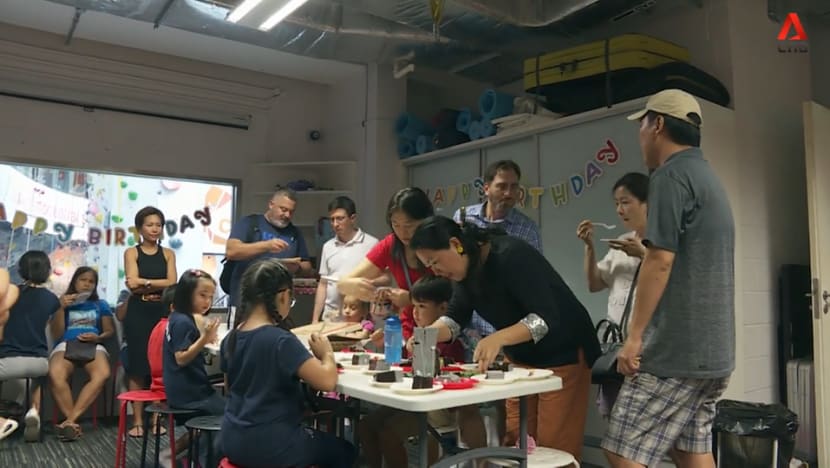
JEWISH ROOTS, SINGAPORE SOIL
Yoni, who runs a technology start-up, has been part of Singapore’s Jewish community for 10 years now. Three of his children were born here.
And even as their life in Singapore embraces a cultural melting pot, part of his Jewish identity was also “created here”.
“It’s funny to hear myself say it, but it’s true,” said the president of the United Hebrew Congregation (Singapore), which comes under the umbrella of progressive Judaism.
“In Israel, one doesn’t need to be too Jewish. You’re surrounded by Jews, it’s just part of life, and you don’t need to make a conscious decision to participate.
“When I first got here, I wasn’t looking for synagogues (nor) Jewish landmarks. It wasn’t the first thought in my mind. In fact, I was happily surprised that there was Jewish infrastructure here," he added.
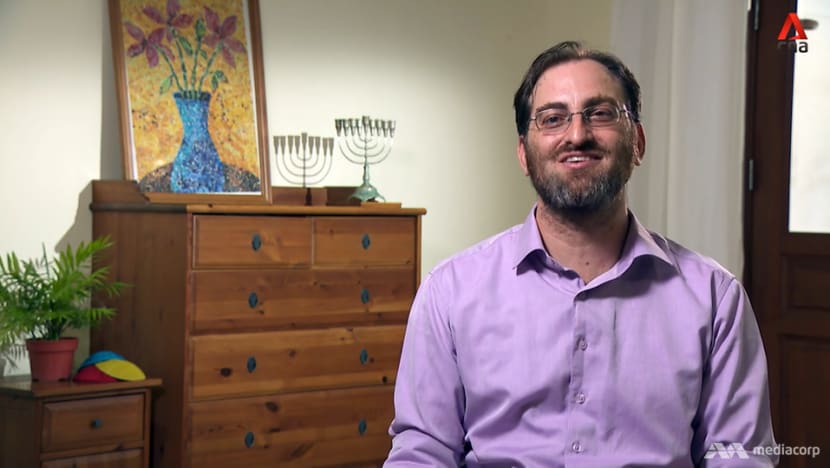
He called the Chesed-El Synagogue, in Oxley Rise, a “beautiful edifice” and an “awesome national monument”. They would also go to the Maghain Aboth Synagogue at Waterloo Street on Friday nights whenever his father visited Singapore.
And in the Central Business District, where he and his wife worked, one of the roads was Synagogue Street, he pointed out. In the east, Meyer Road was named after one of Southeast Asia’s wealthiest merchants, Jewish philanthropist Manasseh Meyer.
“It feels as if I’m surrounded by Jewish street names and Jewish monuments. It took me coming to Singapore to really find my Jewish roots and my Jewish soul,” said Yoni.
There is also an annual Jewish community celebration, often held at Sentosa, and he finds it “marvellous” how they are “free to congregate in a big way and … celebrate freely”.

It is something that strikes Sara too. For example, in Europe, she would not allow Daniel to wear the kippah, the cap that Jewish males wear, so publicly.
“Whereas here, it’s fine,” she said. “We don’t feel any threat or any anti-Semitism that we feel in other countries.”
The Jewish community here has never been big, but their cultural heritage continues to be part of the Singapore mosaic.
For Yoni and Connie, who have “moved around a lot”, this is the longest they have lived in one place. “And we’ve made it our home now,” he said.
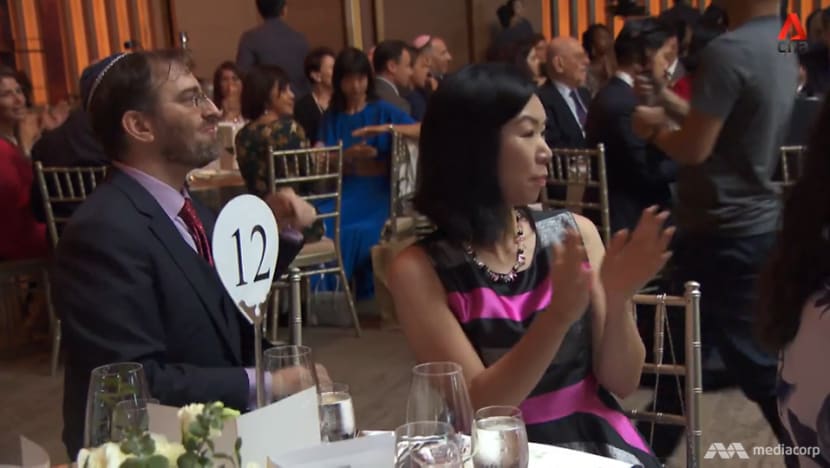
As has Sara’s family. Recalling the day her son David finished NS, she said: “We were proud to be part of Singapore. It was a special moment. I think that made him feel he belongs here.”
Younger brother Daniel is already finding that “growing up here is special”, even if being Jewish is “very hard because we have to keep many laws”.
“(What) I love best in Singapore is that there are so many cultures,” he said. “So we can tell them, ‘Oh, we’re Jewish. Oh, I’m Indian. Oh, I’m Muslim.’ And it all goes together.”
Watch this episode of Singapore Mosaic here.
